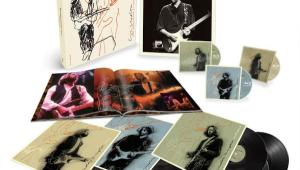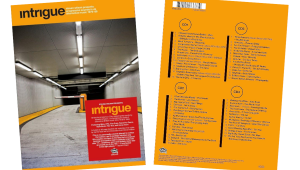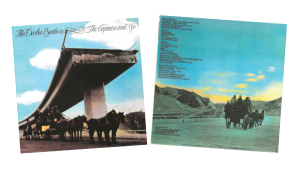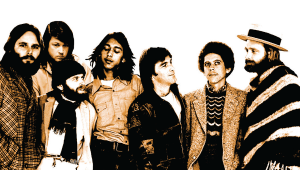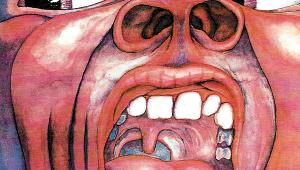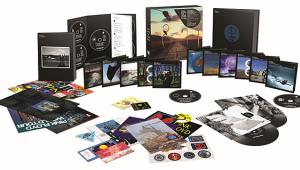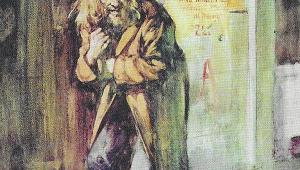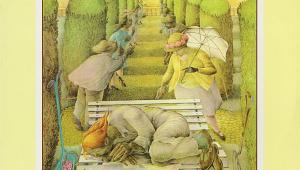James Taylor: The Warner Bros. Albums -1970-1976
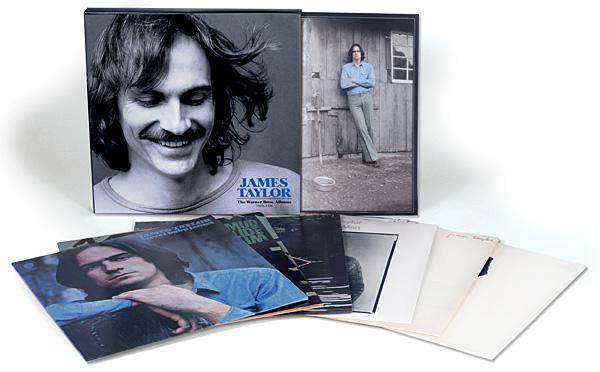
The undisputed king of this harmonious hill in the 1970s was James Taylor. The New England-bred Taylor had actually released his first, self-titled album in November 1968 on The Beatles' custom Apple label, but his nascent drug problem essentially prevented him from doing much in the way of promotion or touring. Subsequently signing with the artist-friendly Warner Bros. label, Taylor ultimately emerged from his personal haze to go on a creatively sparked six-album run beautifully captured in this multidisc box set, The Warner Bros. Albums – 1970-1976.
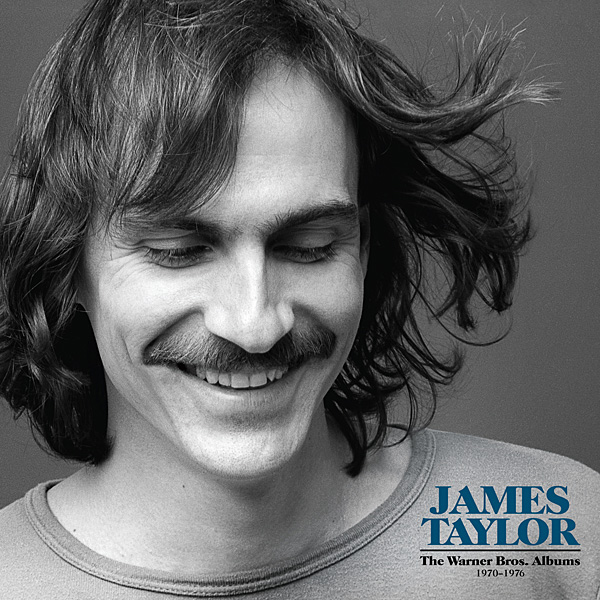
As overseen by Taylor's longtime friend, early manager, and original producer Peter Asher, the vinyl box version of 1970-1976, with all albums therein reproduced on 180-gram wax and mastered by the perpetually golden-eared Bernie Grundman, is the best way to fully appreciate the true depth of Taylor's compositions, honey-dewed lead vocals, finely cultivated accompanying harmony partners, and top-flight coast-to-coast studio musician and band accompaniment. Completists may feel compelled to pick up the reasonably priced companion CD box set, but I defy anyone, regardless of age or fortitude of eyesight, to be able to read the song credits and lyrics as reproduced on the 4.9-inch-square back covers and/or sleeve inserts without deploying a magnifying glass and/or microscope.
At any rate, tracing Taylor's muse chronologically is the correctly charted listening path here, imo, and that's exactly how I tackled this box set's collective 75 tracks on wax. The ever-endearing, not-so-innocent charm of February 1970's Sweet Baby James never fails to ignite the very instant the needle drops on the opening title track. After some style-defining acoustic-guitar picking, Taylor calmly observes, "He sings out a song which is soft but it's clear" less than a minute into it—and that may very well be the manifesto for how he's approached his entire career. From that moment on, there are many wonders to behold (or should that be, "be-heard"?), including Bobby West's keenly bowed bass on the starkly confessional "Fire and Rain" and the bluesy, electric-guitar interplay with Danny "Kootch" Kortchmar on "Steamroller" (the latter beautifully counterpointed with Jack Bielan's swinging horn arrangement).
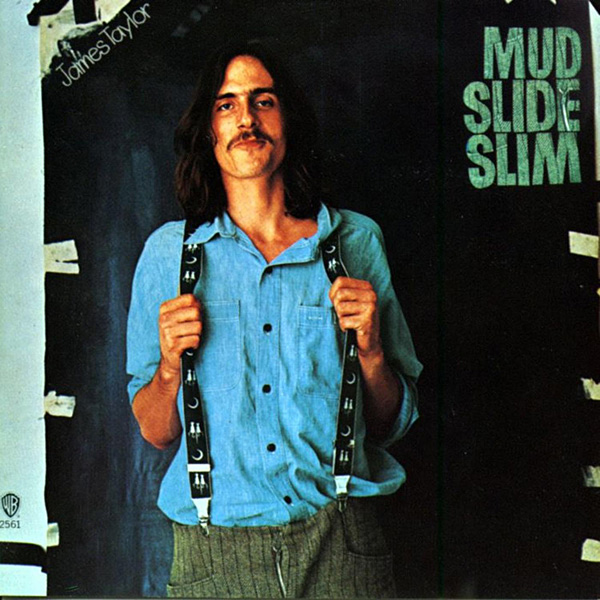
After that, the highlights are many, and rarely far-between. April 1971's Mud Slide Slim and the Blue Horizon absolutely sparkles with the intertwined vocal interplay between Taylor and Joni Mitchell on the back half of Carole King's indelible "You've Got a Friend" (Taylor's first and only No. 1 single), King's own, often underrated piano playing enhancement of "Long Ago and Far Away" (again featuring Mitchell on backgrounds), and drummer Russ Kunkel's seamless brushwork on "Machine Gun Kelly." Meanwhile, November 1972's One Man Dog opens with the suave confidence of the call-and-response breaks on "One Man Parade," followed by Kunkel's congas and Michael Brecker's ever-so-smooth tenor sax solo on the lightly pleading "Don't Let Me Be Lonely Tonight" and Linda Ronstadt's soaring, sultry tone on the traditional come-hither directive of "One Morning in May."
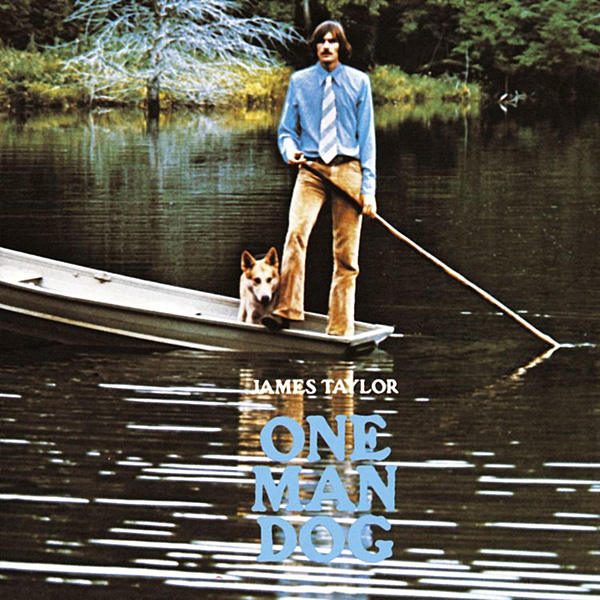
Next, June 1974's somewhat overlooked Walking Man deserves a slight re-evaluation, as witnessed by the way Taylor sings with himself on the string-laden title track and the funky declaration of "Rock 'N' Roll Is Music Now" (listen especially for the lofty background-vocal blending with Paul and Linda McCartney and Taylor's then-life partner Carly Simon), and the fan-favorite travelogue "Hello Old Friend." May 1975's Gorilla re-upped the ante with the below-the-border jangle of "Mexico," featuring the unmistakable harmonies of David Crosby and Graham Nash, the instant singalong allure of "How Sweet It Is (To Be Loved by You)" with Simon again providing the vocal counter ("I want to stop and thank you baby," indeed!), and the hidden gem of "Angry Blues," with Little Feat's Lowell George getting his patented gnarly, growly licks in via both vocal and electric guitar accompaniment. Finally, June 1976's In the Pocket boasts a veritable cavalcade of high-profile guests. "Shower the People" kicks off the parade with well-placed orchestral bells and vibes from Victor Feldman and Simon again harmonizing on the choruses to a T (please also note that the "the" in the title line is always deliberately sung as "thee"), while Art Garfunkel lends his angelic high tenor to both "A Junkie's Lament" and "Captain Jim's Drunken Dream" and Stevie Wonder blows his signature harmonica on the track he co-wrote with Taylor, the uplifting "Don't Be Sad Cause Your Sun Is Down."
I've seen fire and I've seen rain, and I've rarely heard anything as sonically sweet as the recorded output of James Taylor. May the sunny days evoked by the finest sounds of his many magical tunes never end.
LP & CD
Label: Rhino/Warner Bros.
Audio Formats: 180-gram vinyl (LP); 16-bit/44.1kHz PCM Stereo (CD)
Number of Tracks: 75 (on 6 LPs & 6 CDs)
Length: 3:45:12
Producers: Peter Asher (original recordings, box-set mastering supervision); David Spinozza, Lenny Waronker, Russ Titelman (original recordings); Bill Inglot (mastering supervision); Bernie Grundman (mastering)
Engineers: Bill Lazerus, Richard Sanford Orshoff, Harry Maslin, Lee Herschberg, Donn Landee (original recordings); Jock McLean, Rich Blakin, David Henson, 4 more (recording assistants)

